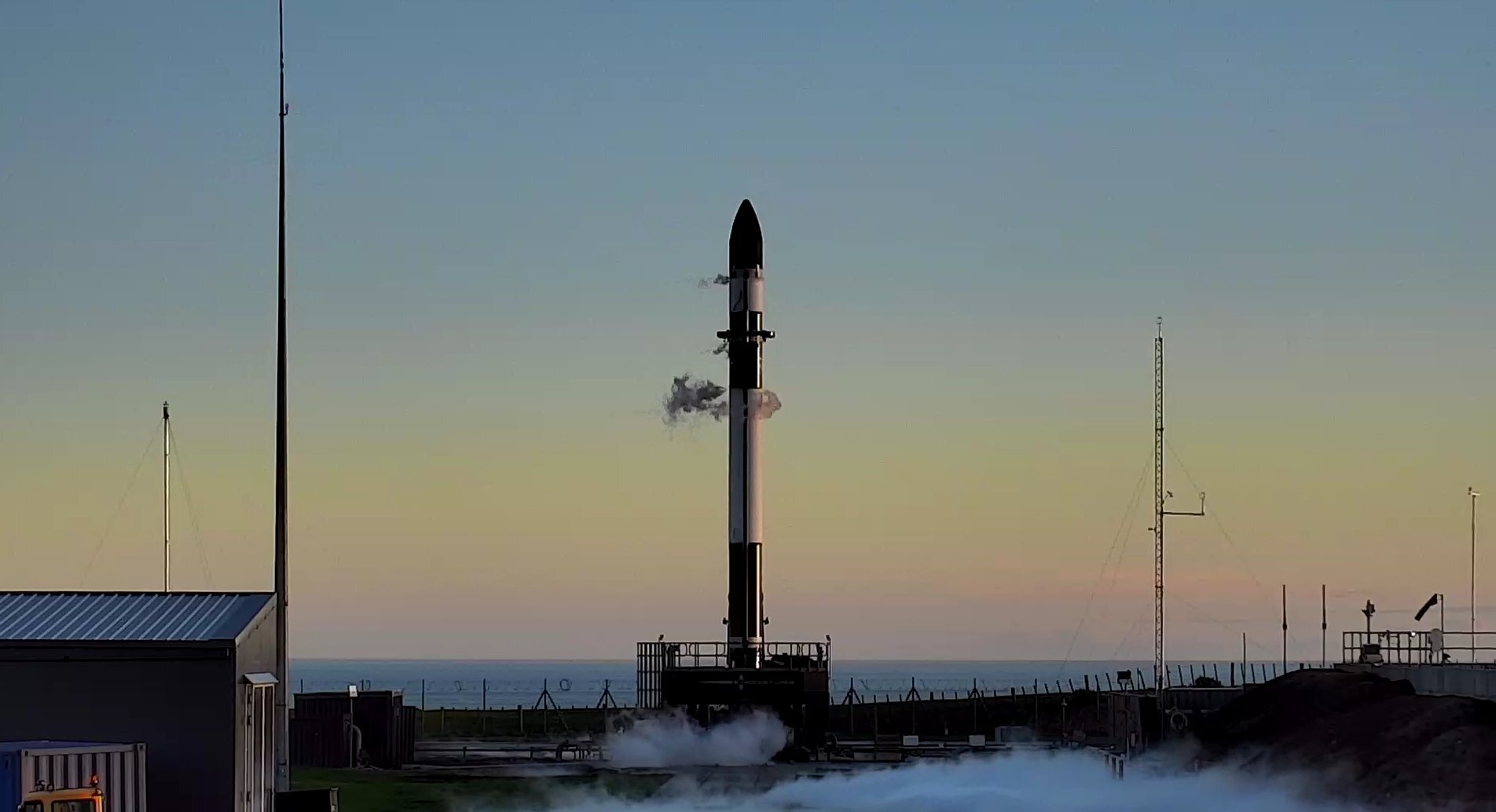Rocket Lab is back in business.
The company's Electron rocket launched a small satellite for the U.S. military early Thursday morning (July 29), acing its first mission since suffering a failure in mid-May.
The two-stage Electron rose off a pad at Rocket Lab's New Zealand launch site, on the North Island's Mahia Peninsula, at 2 a.m. EDT (0600 GMT; 6 p.m. local New Zealand time), carrying a demonstration satellite called Monolith for the U.S. Space Force.
"We are off the pad and on our way to space once again, with successful liftoff from Rocket Lab's Launch Complex 1," Rocket Lab senior communication advisor Murielle Baker said during a live webcast of the launch.
Related: Rocket Lab and its Electron booster (photos)

Monolith, which is sponsored by the Air Force Research Laboratory, will be deployed into its target orbit 370 miles (600 kilometers) above Earth about an hour after liftoff, if all goes according to plan.
Once in orbit, Monolith "will explore and demonstrate the use of a deployable sensor, where the sensor's mass is a substantial fraction of the total mass of the spacecraft, changing the spacecraft's dynamic properties and testing ability to maintain spacecraft attitude control," Rocket Lab representatives wrote in a mission press kit, which you can find here.
Sign up for the Live Science daily newsletter now
Get the world’s most fascinating discoveries delivered straight to your inbox.
"Analysis from the use of a deployable sensor aims to enable the use of smaller satellite buses when building future deployable sensors such as weather satellites, thereby reducing the cost, complexity and development timelines," they added. "The satellite will also provide a platform to test future space protection capabilities."
Thursday morning's launch was procured by the U.S. Department of Defense's Space Test Program and the Rocket Systems Launch Program, both of which are based at Kirtland Air Force Base in New Mexico. That state is famous for its green chiles and chile-infused cuisine, which explains the name Rocket Lab gave to the mission: "It's A Little Chile Up Here."
The 59-foot-tall (18 meters) Electron provides dedicated rides to space for small satellites. The rocket now has 21 launches under its belt, including four this year.
However, the most recent Electron liftoff before today, which took place on May 15, did not go well. Electron's second stage shut down too early, resulting in the loss of the mission's payload, two satellites for the geospatial intelligence company BlackSky Global.
Rocket Lab's anomaly investigation traced the cause to an issue with the upper-stage engine igniter.
"This induced a corruption of signals within the engine computer that caused the Rutherford engine's thrust vector control (TVC) to deviate outside nominal parameters and resulted in the engine computer commanding zero pump speed, shutting down the engine," company representatives wrote in an anomaly update on July 19.
"Rocket Lab has since been able to reliably replicate the issue in testing and has implemented redundancies in the ignition system to prevent any future reoccurrence, including modifications to the igniter's design and manufacture," they added.
Electron is currently an expendable launcher, but Rocket Lab wants to change that. The company plans to eventually pluck falling Electron first stages out of the sky with a helicopter, then haul them back to land for reuse in relatively short order.
Rocket Lab has been making progress toward this end goal. For example, on both the May 15 mission and a November 2020 flight, the company brought an Electron first stage down for a soft ocean splashdown under parachutes. Engineers and technicians have been analyzing these returned boosters, which company representatives said survived their space missions in good shape.
"It's A Little Chile Up Here" did not feature a soft splashdown, however. Electron's first stage ditched into the ocean after its work was done, sinking to the seafloor the old-fashioned way.
Mike Wall is the author of "Out There" (Grand Central Publishing, 2018; illustrated by Karl Tate), a book about the search for alien life. Follow him on Twitter @michaeldwall. Follow us on Twitter @Spacedotcom or Facebook.












